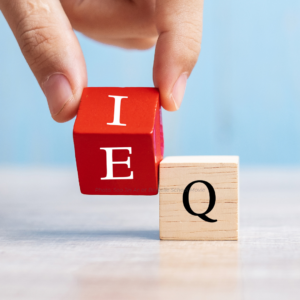Nurturing Emotional Intelligence in Children: A Parenting Perspective
As parents, we often focus on academic success, extracurricular achievements, and setting our children up for a bright future. But what about emotional intelligence (EQ)? This vital skill allows children to navigate relationships, understand their feelings, and show empathy toward others. Developing EQ in kids isn’t just a parenting goal—it’s a gift that stays with them for life.
One moment that warmed my heart and reminded me of the importance of teaching empathy happened when my son was in grade three. At the time, he was an energetic boy who loved games and teamwork. One day, he came home and shared a story that left me in awe of his kindness.
During recess, he noticed one of his classmates sitting alone. This boy had been bullied and was left out of the games the other kids were playing. My son observed the situation and, instead of simply walking away or feeling helpless, he decided to act. He walked up to his classmate, struck up a conversation, and then invited him to join his team.
Later, he told me, “Mom, he wasn’t smiling at first, but when we started playing, he was laughing and having so much fun!”
That simple yet profound moment taught me that children are capable of immense kindness when guided to recognize and respond to others’ emotions. It also reminded me of the importance of modeling emotional intelligence at home.
Building Blocks of Emotional Intelligence
So, how can we, as parents, nurture emotional intelligence in our kids? It’s not something we can teach in a single conversation. Instead, it’s woven into everyday interactions, modeled behavior, and intentional teaching moments.
Here are some strategies that have worked for me:
1. Model Empathy
Children learn by observing. If they see us acknowledging others’ feelings and responding with compassion, they’re likely to mirror those actions. For example, whenever my kids express frustration or sadness, I make it a point to listen attentively and validate their feelings. This simple act shows them that emotions matter and deserve attention.
2. Encourage Open Communication
In our home, we have a “talk-it-out” rule. Whether it’s about a bad day at school or a disagreement with a sibling, we encourage our kids to share their feelings without fear of judgment. This practice helps them articulate emotions and understand their own needs.
3. Teach Conflict Resolution
Siblings often argue—it’s a universal truth of parenting. But these moments can become opportunities to teach problem-solving and empathy. Once, my younger son was upset because his brother took a toy he was playing with. Instead of stepping in to solve it for them, I guided them through a conversation about sharing and fairness. By allowing them to voice their perspectives and work toward a solution, they learned to understand each other better.
#### 4. **Celebrate Acts of Kindness**
When my son stood up for his classmate, I made sure to acknowledge his empathy and courage. Positive reinforcement can go a long way in encouraging similar behavior. Whether it’s helping a friend, comforting a sibling, or showing gratitude, celebrating these moments reinforces their importance.
5. Foster a Growth Mindset Around Emotions
Children need to know that all emotions are valid—even the uncomfortable ones. By teaching them that it’s okay to feel angry, sad, or scared, we help them develop a healthy relationship with their emotions. For example, when my kids experience disappointment, I encourage them to name their feelings and brainstorm ways to cope or move forward.
The Ripple Effect of Emotional Intelligence
The impact of teaching emotional intelligence goes beyond the immediate family. When children learn to empathize and connect, they create ripples of positivity in their communities. My son’s act of kindness not only uplifted his friend but also inspired his classmates to be more inclusive.
As a parenting coach and teen psychologist, I’ve seen firsthand how developing EQ in childhood lays the foundation for healthier relationships and better mental health in the teenage years. Kids with high emotional intelligence are better equipped to handle stress, navigate peer relationships, and build self-confidence.
A Call to Parents
Every child has the potential to be a beacon of empathy and understanding. Our role as parents is to nurture these qualities by creating a home environment that values emotional connection.
Let’s remember that it’s often the little moments—a kind word, a comforting hug, or standing up for someone in need—that shape our children’s character.
So, the next time you see your child offer a helping hand or share a smile with someone who needs it, take a moment to celebrate. Because in raising emotionally intelligent kids, we’re not just building better individuals—we’re creating a kinder, more compassionate world.
After all, isn’t  that the legacy we all want to leave behind?
that the legacy we all want to leave behind?











